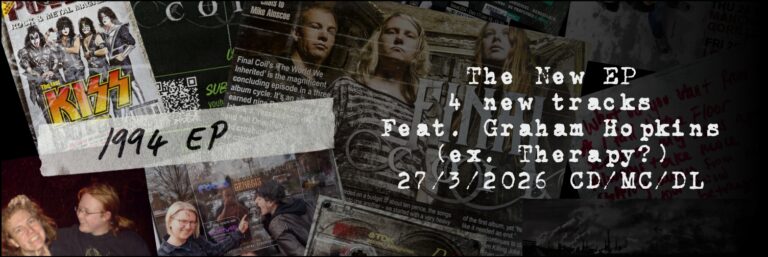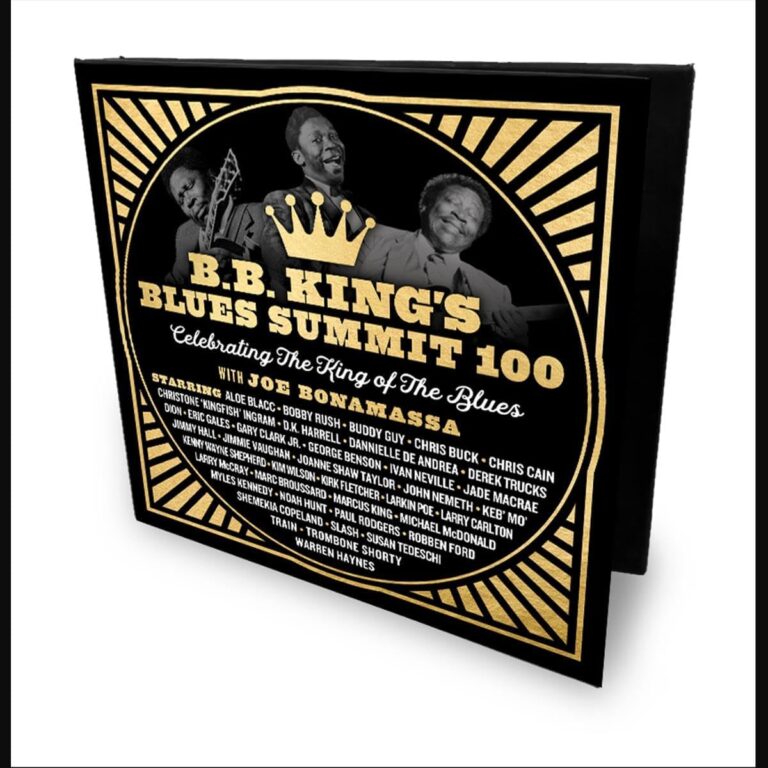
Neal Morse, over the course of a nearly thirty-year career in music, has become a byword for ambitious and soulful albums. His discography includes over forty studio albums, not to mention a huge array of live albums, and it is nothing short of remarkable that he has remained able to maintain a distinctive sound whilst giving each of his projects their own voice.
His latest effort, Innocence and Danger, is a complex double album (albeit unplanned as such) and the fourth outing for The Neal Morse Band (comprising Neal, Mike Portnoy, Randy George, Bill Hubauer and Eric Gillette). Unlike the previous two efforts (2016’s The Similitude Of A Dream and 2019’s The Great Adventure, both of which were based on Bunyan’s The Pilgrim’s Progress), the album is not a concept album and, remarkably, it was recorded in just a week, with no pre-prepared demos from Neal. The result is an album that is remarkably organic, not least because of the collaboration demanded from this more spontaneous approach to song-writing. Although the original idea was not to produce a double, the album splits neatly into two, the first half comprising rather shorter songs (although four still manage to top the seven-minute mark), while the latter half offers just two pieces standing at nineteen-minutes and thirty-one minutes respectively.
Opening with the strong, Genesis-influenced Do It All Again, The Neal Morse Band hit the ground running, offering up a piece that plays out as much as a prologue as it does an opening track. As fans have come to expect from Neal Morse projects, the layered harmonies are the key here and, with the music soaring, the unison vocals only serve to add to the sense of majesty to a track that shifts deftly between its various passages. That Genesis influence (most notably the Hackett era) remains on the stunning Bird On A Wire, which sees Mike Portnoy demolishing his kit as the band unleash wave after wave of vocal wonder. A truly inspirational piece of music, impeccably performed, it is as grand a piece of prog rock as you’ll hear all year, delivered with real joy by a band at the top of their game. Apparently working their way through their various influences, the band slow the pace a touch on the sun dappled Your Place In The Sun, which has a bouncy feel reminiscent of Supertramp. With each member taking a spell behind the mic and yet more bravura drumming from Portnoy, it’s a number that is both whimsical and fun. Sticking with the Supertramp vibe, Another Story To Tell may add a touch of modern grit to the guitars, but Neal’s stabbing piano is pure Hodgson and Davies in execution, although the chorus returns to the stargazing grandeur of the opening tracks.
Changing focus once again, The Way It Had To Be holds a mirror up to Pink Floyd’s Breathe for a track that employs the liquid slide of Gilmour and a somnolent beat. It’s a beautiful number, and a perfect example of how well the Neal Morse Band gel as musicians. In contrast, the subtle acoustic work of Emergence offers a strikingly organic counterpoint to the lush soundscapes of its predecessor. It’s a short, sweet palette cleanser before the band reappear for the CSN&Y-esque Not Afraid Pt. 1. Built around mesmerising vocal harmonies, but retaining the acoustic guitar, it’s a stripped-down prelude to the lengthy epic that follows on disc two. In all honesty I was initially not convinced by the notion of a seven-minute version of Bridge Over Troubled Water. Yet, the track does make sense in the context of pieces that precede it and the band take great joy in giving the piece a full progressive make over that’s more ELP than Simon and Garfunkle, not least when a full-blown string section is unleashed for the track’s glorious everything-but-the-kitchen-sink climax.
Clocking in at nearly twenty-minutes, Not Afraid Pt.2 opens disc two. Conceived by Morse and then worked up from improvised jam sessions, an epic it is, but with a loose vibe that recalls the great prog albums of the seventies. From the moment the lone piano that opens the piece gives way to seismic guitars and propulsive rhythms, it is clear that this might be one of the most expansively heavy things Neal Morse has ever produced, to the extent that you can imagine certain passages fitting in with latter-day Opeth. The improvisational nature of the music is very much to the heart of the matter here, as there’s a freshness that you simply don’t hear when bands map out each and every sequence to the nth degree. As such, the track’s twenty minutes are dispatched in what feels like a fraction of the time and the listener is left with a lingering sense of the joy with which the band took to the recording. The second piece on the disc, Beyond The Years is even more expansive, topping the half-hour mark. Built around a basic sketch from Hubauer, the band develop the track into a typically grandiose statement that draws from all the aforementioned influences (and throwing in plenty more for good measure). Really, you have to thank your lucky stars that there are still bands willing to put everything out there in this way, because it’s a truly life-affirming and brilliantly constructed symphony of sounds that seems to fill the room with light.
With so many albums to his name, you’d be forgiven for thinking that Neal Morse might be running short of ideas, but Innocence And Danger proves that, when you have a genuine passion for what you do, there is no end to the inspiration you might find. Put simply, the album is an absolute prog rock masterpiece. The first half feels very much like a band exploring their influences and taking great pleasure in the doing. The second half, however, is where the most remarkable music emerges. There is so much energy and love in the two tracks found here, and the fifty-minute run time passes in the merest blink of an eye. Lyrically engaging and musically awe-inspiring Innocence And Danger is an absolute treasure. 10/10



